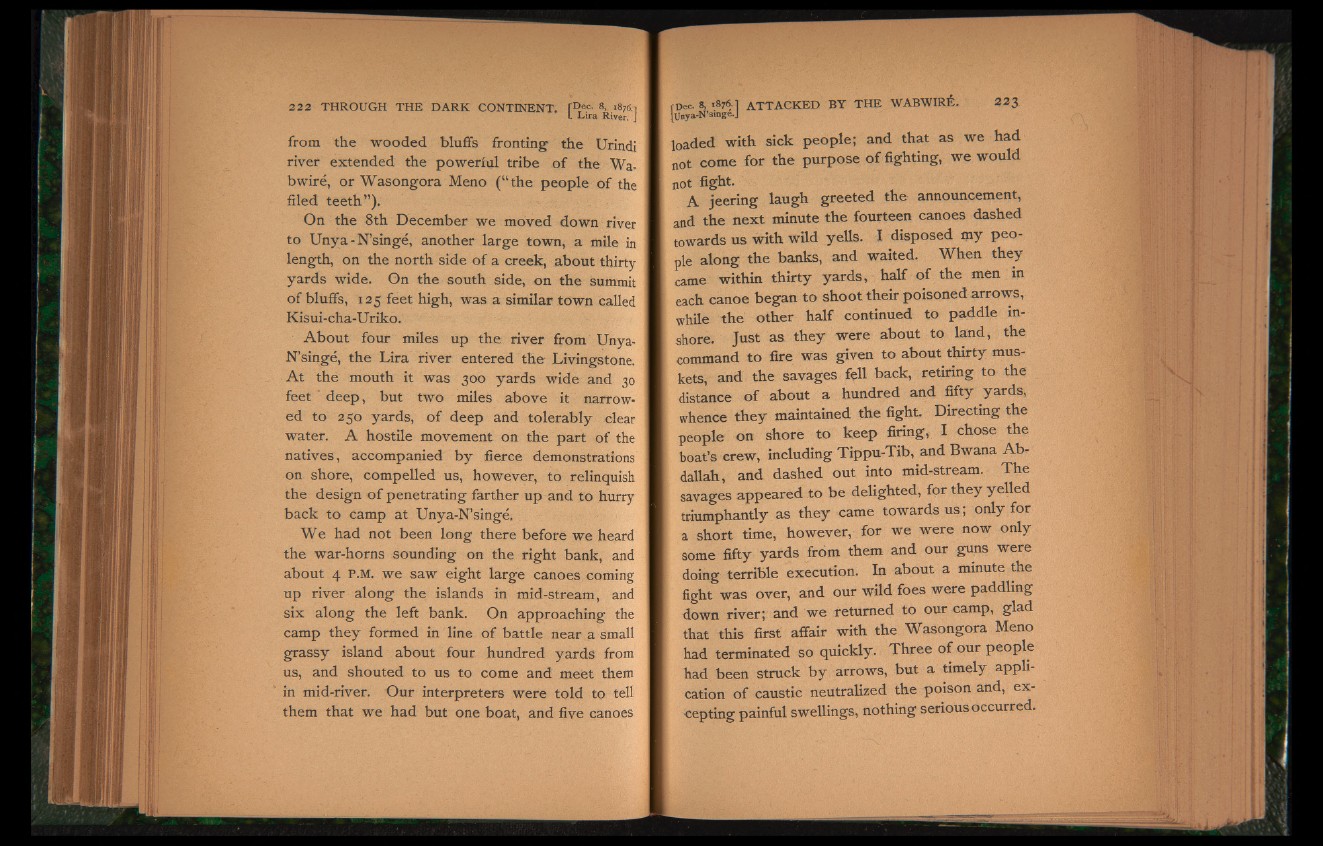
from the wooded bluffs fronting the Urindi
river extended the powerful tribe of the Wafa
wire, or Wasongora Meno (“ the people of the
filed teeth”).
On the 8th December we moved down river
to Unya-N’singe, another large town, a mile in
length, on the north side of a creek, about thirty
yards wide. On the south side, on the summit
of bluffs, 125 feet high, was a similar town called
Kisui-cha-Uriko.
About four miles up the river from Unya-
N’singe, the Lira river entered the Livingstone.
At the mouth it was 300 yards wide and 30
feet deep, but two miles above it narrowed
to 250 yards, of deep and tolerably clear
water. A hostile movement on the part of the
natives, accompanied by fierce demonstrations
on shore, compelled us, however, to relinquish
the design of penetrating farther up and to hurry
back to camp at Unya-N’singe.
We had not been long there before we heard
the war-horns sounding on the right bank, and
about 4 P.M. we saw eight large canoes coming
up river along the islands in mid-stream, and
six along the left bank. On approaching the
camp they formed in line of battle near a small
grassy island about four hundred yards from
us, and shouted to us to come and meet them
in mid-river. Our interpreters were told to tell
them that we had but one boat, and five canoes
loaded with sick people; and that as we had
not come for the purpose of fighting, we would
not fight.
A jeering laugh greeted the announcement,
and the next minute the fourteen canoes dashed
towards us with wild yells. I disposed my people
along the banks, and waited. When they
came within thirty yards, half of the men in
each canoe began to shoot their poisoned arrows,
while the other half continued to paddle inshore.
Just as they were about to land, the
command to fire was given to about thirty muskets,
and the savages fell back, retiring to the
distance of about a hundred and fifty yards,
whence they maintained the fight. Directing the
people on shore to keep firing, I chose the
boat’s crew, including Tippu-Tib, and Bwana Ab-
dallah, and dashed out into mid-stream. The
savages appeared to be delighted, for they yelled
triumphantly as they came towards us; only for
a short time, however, for we were now only
some fifty yards from them and our guns were
doing terrible execution. In about a minute the
fight was over, and our wild foes were paddling
down river; and we returned to our camp, glad
that this first affair with the Wasongora Meno
had terminated so quickly. Three of our people
had been struck by arrows, but a timely application
of caustic neutralized the poison and, excepting
painful swellings, nothing serious occurred.